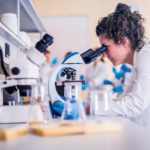 The early years are often vital for the success of any tech-based startup as they need to both prove their technology while also establishing a reputation and foothold in the market. What’s more, the nature of such fast-growing sectors often means that tech startups have to go international as quickly as possible.
The early years are often vital for the success of any tech-based startup as they need to both prove their technology while also establishing a reputation and foothold in the market. What’s more, the nature of such fast-growing sectors often means that tech startups have to go international as quickly as possible.
Research from Kiel University, in Germany, suggests that the same is often the case for startups that are spun out of universities and other research institutions.
“On average, academic spin-offs need about three years to achieve their first international sales,” the researchers explain. “But you have to bear in mind that the initial period without reliable customer demand is a big strain on the new company.”
Spinning out
The researchers analyzed over 160 academic spin-outs over an 18-year period, with their research beginning with a survey of founders to understand how their careers had evolved.
“Start-up teams whose members gained cooperation experience with more than six industrial partners or with more than two international researchers during their time at a research institution shorten the time until the first foreign turnover by more than half,” the researchers explain.
The analysis found that when spin-outs had this level of experience with cooperation during the research phase of their work, they were more likely to go international successfully. This is due in large part to the international nature of many research projects in academia.
“They already acquire valuable skills for early and successful internationalization of their later spin-offs through research projects, if these are designed cooperatively,” the authors continue.
“This enables them to achieve a considerable acceleration in the internationalization of their business activities. For the sale of innovative products based on the latest research results in particular, it is very important to quickly get some kind of ‘proof of concept’ from customers abroad.”
Economic contribution
The authors believe that their findings help to highlight the significant economic contribution such spin-offs can make to an economy. As such, they believe that support measures to help them to grow can have an outsized impact.
They cite the example of one such spin-off, called ibidi GmbH, which produces tech solutions for visualizing cell movements in Munich. The company had to expand into the United States as quickly as possible, which they were successfully able to do, and have since grown to employ over 100 people and service over 40 countries.
Of the 163 companies examined in the study, approximately 65 percent, or 106 companies, remained active in the market during the study period, while approximately six percent, or ten companies, were acquired by other firms.
More robust
The exit rate of approximately 29 percent, or 47 companies, is notably lower than the survival rate of academic spin-offs in international markets, which is reported to be around 80 percent or higher within the first five years.
In comparison, the general survival rate for start-ups in Germany after five years is approximately 37 percent, as reported by the Federal Statistical Office’s business demography according to the business register in Wiesbaden 2022.
“These results are really encouraging with regard to career prospects for scientists. They show that a scientific occupation offers good conditions for being successful in this field as well. The fact that this is especially true if the qualification phases have provided the students with their own international and intercultural experience is an important aspect for the career counseling services at the Postdoc Center, which we will also consider in the future,” the researchers explain.
Academic spin-offs enjoy the notable benefit of being able to leverage cutting-edge technology and funding to support their launch. Furthermore, these start-ups are typically well-conceived, having undergone more than a year of intensive preparation that includes a rigorous assessment of the market landscape, rather than being borne out of a desperate situation.